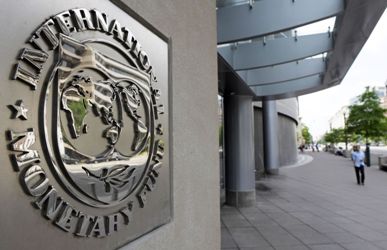Sudan projected to receive $1.4 billion from Juba in 2014: IMF
November 5, 2013 (KHARTOUM) – The Sudanese government is poised to receive $1.42 billion next year from Juba as part of the agreements signed between the two sides regarding exporting oil from landlocked South Sudan through pipelines extending all the way to terminals in the coastal city of Port Sudan.

The halting of oil production hit the economies of the two countries hard causing them to lose billions of dollars in potential revenue.
Last year the African Union (AU) brokered an agreement by which Juba would pay Khartoum a fixed fee for every barrel of oil exported as well as around $3.2 billion to plug the budget hole caused by the loss of oil reserves as a result of South Sudan’s independence.
The International Monetary Fund (IMF) said in its Sudan Article IV Consultation report released last Friday that remittances by Juba to Khartoum will jump from $442 million in 2013 to $1.42 billion in 2014 then will start decreasing to $1.40 billion in 2015 and $1.11 billion in 2016.
This arrangement will help bring Sudan’s fiscal deficit down to 2% of its GDP in 2013 compared to 3.8% in 2012. This figure is projected to drop further in 2014 to 0.9% before sliding back up in subsequent years.
Despite this, the IMF noted that non-oil economic growth is expected to slow to 2.3% this year from 4.6% in 2012 due to a slowdown in industrial and service activities.
In order to improve the macroeconomic outlook, the IMF urged Sudan to “rationalize” government spending, improve revenue collection, make exchange rate more flexible and restrict credit extended by the Central Bank of Sudan (CBoS) to the government so as not to exceed 2.5 billion Sudanese pounds and have CBoS refrain from rescheduling reimbursements due by Khartoum.
The CBoS must also stop acquiring government bonds known as Musharaka Certificates, the IMF said.
The IMF also pressed Sudan to overhaul its tax code noting that its revenue-to-GDP ratio of 6.2% is very low compared to similar economies with an average of 17% “reflecting in part exemptions and extensive tax incentives”.
“Improving tax revenue will entail raising some taxes, streamlining tax exemptions, rationalizing business tax incentives, and taxing gold activities. Tax efforts should be accompanied by revenue administration measures aimed at developing a tax procedure code, strengthening the audit capacity, reinforcing the penalty procedures for non-compliant taxpayers, and enhancing the business registration process and core operations’ workflow” the IMF said.
Establishing a taxation system to the increasingly growing gold sector would be a central part of this policy, the IMF said and noted that gold accounted for 40% of exports earnings in 2012 compared to 1% in 2008.
Nonetheless the IMF said that while Sudan’s central bank managed to boost its foreign reserves as a result of its gold trading activities “the benefits accruing to the budget, on the other hand, were negligible”.
“Under the current taxation system, while artisanal miners are not taxed, gold mining companies are subject to a royalty (7 percent), a business profit tax (BPT; 30 percent), and pay a dividend proportional to for the equity share held by the government,” the IMF said.
While this taxation system compares favorably to those in other gold producing countries, the IMF said that in the long term Sudan needs to impose a tax on mining companies to ensure that taxation will move in line with changes in activity.
As far as artisanal miners, a withholding tax could be levied when they sell their findings to gold merchants that should be close to the 30% BPT rate but not too high to encourage smuggling.
The IMF also warned against the move by Khartoum to boost public sector wages calling it inflationary and said that any such increase should be linked to increases in the economy’s productivity.
Instead, savings from the reduction in subsidies started last year should be used to better targeted social programs and higher capital spending.
Late last September, the Sudanese government agreed to scale back fuel subsidies which caused prices of gasoline and diesel to increase by almost 100%.
Violent clashes erupted between the demonstrators and security forces in different parts of the country leading to 70 deaths according to official figures and more than a 200 according to activists and opposition.
Senior Sudanese officials including president Omer Hassan al-Bashir have defended the measure saying the only alternative would be an economic collapse as the state budget can no longer continue offering the generous subsidies on petroleum products to its people.
The IMF approved of Khartoum’s decision saying that fuel subsidies in Sudan “disproportionately” benefit the rich.
“[T] he bottom quintile of the population receives about 3 percent of the subsidy, whereas the top quintile receives more than 50 percent. Against this background, the phasing of fuel subsidies should proceed in a gradual fashion over the next four to five years”.
In a statement submitted to the national assembly yesterday, the Sudanese finance minister said that next year the government will cut subsidies further on certain goods including fuel in order to reduce the budget deficit and stabilize the exchange rate of the Sudanese pound against the US dollar.
The IMF did acknowledge that phasing out subsidies will negatively impact a large section of the population noting that 47% of Sudanese live below poverty line.
“Therefore, an increase in social expenditures should accompany the phasing out of subsidies. Over the medium term, the authorities should gradually move from a broad-based subsidy scheme to a targeted one”.
(ST)
